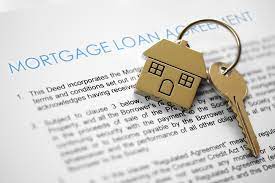Advertisement
If you’re in the market for a new home or looking to refinance your current mortgage, you’ve likely come across the term “mortgage rate.” But what exactly does it mean? In this guide, we will provide you with the meaning of mortgage and also give you a list of mortgage rate examples.
What is a mortgage rate?
A mortgage rate is the interest rate charged by a lender on a home loan. This rate determines the amount of interest a borrower will pay over the life of the loan. Mortgage rates can vary depending on the lender, the type of loan, and other factors.
How are mortgage rates determined?
Mortgage rates are determined by a variety of factors, including the current state of the economy, inflation, the Federal Reserve’s monetary policy, and the borrower’s credit score. Lenders may also consider factors such as the loan amount, the down payment amount, and the length of the loan when determining the mortgage rate.
Fixed-rate vs. adjustable-rate mortgages
There are two main types of mortgage loans: fixed-rate and adjustable-rate. A fixed-rate mortgage has a set interest rate that remains the same throughout the life of the loan. An adjustable-rate mortgage (ARM) has an interest rate that can change periodically, based on market conditions.
Fixed-rate mortgages are often preferred by borrowers who want a predictable monthly payment and don’t want to worry about fluctuations in interest rates. Adjustable-rate mortgages can be beneficial for borrowers who anticipate a decrease in interest rates in the future, as they may end up paying less interest over the life of the loan.
Advertisement
Factors that affect mortgage rates
Several factors can affect mortgage rates, including:
- Credit score: Borrowers with higher credit scores are often able to secure lower mortgage rates.
- Loan amount: Larger loan amounts may result in higher interest rates.
- Down payment amount: A larger down payment can result in a lower interest rate.
- Length of the loan: Shorter loan terms often have lower interest rates.
- Economic conditions: Changes in the economy, inflation, and the Federal Reserve’s monetary policy can all affect mortgage rates.
Why mortgage rates matter
Mortgage rates can have a significant impact on the total cost of a home loan. Even a small difference in the interest rate can result in thousands of dollars in savings or additional costs over the life of the loan. By understanding how mortgage rates are determined and what factors can affect them, borrowers can make informed decisions when choosing a home loan.
Conclusion
A mortgage rate is the interest rate charged by a lender on a home loan. Mortgage rates are determined by a variety of factors, including the current state of the economy, inflation, and the borrower’s credit score. Factors that can affect mortgage rates include credit score, loan amount, down payment amount, length of the loan, and economic conditions. By understanding how mortgage rates work, borrowers can make informed decisions when choosing a home loan.
Advertisement
